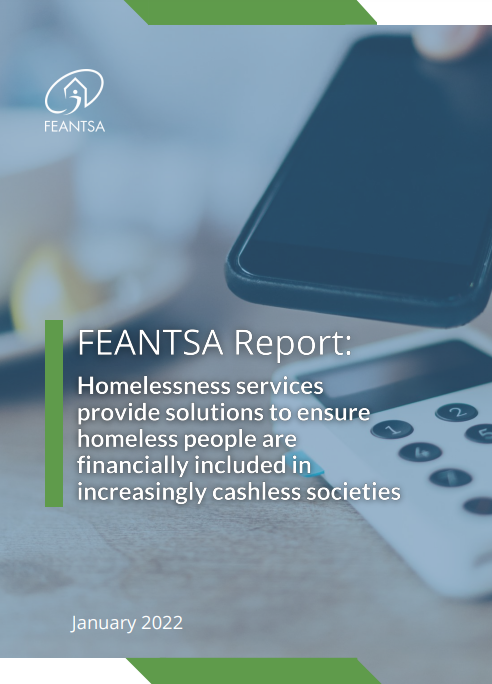
Homelessness Services
Homelessness Services Provide Solutions to Ensure Homeless People are Financially Included in Increasingly Cashless Societies
January 2022 - FEANTSA
Extract of the Introduction
The objective of this paper is to shed light on the financial challenges faced by people experiencing homelessness in today’s increasingly cashless and digitalised societies, with a particular focus on access to payment accounts with basic features. We highlight that people living in destitution and marginalisation are at an increased risk of financial exclusion, which can contribute to amplifying their social exclusion. Homeless people, asylum seekers, refugees and Roma and Travellers, have been identified as the most at risk groups when it comes to financial exclusion.
Financial exclusion is defined by the European Commission as “(…) not being able to access or use ‘financial services in the mainstream market that are appropriate to (people’s) needs and enable them to lead a normal life in the society in which they belong’ (European Commission, 2008).” In most societies contactless card payments and other cashless means of paying are predominant, thus having a bank account is the first step for securing financial participation. The COVID19 pandemic has added a new layer of digitalisation and cashlessness to our societies, by moving public services almost entirely online and further encouraging cashless payments. Since the outbreak of the pandemic cash has been perceived as a means of transmitting the virus and– cash payments have increasingly been replaced by card payments. Furthermore, ATMs have started being physically removed in several European countries. All these changes are negatively impacting individuals who face barriers in opening bank accounts, as part of their financial exclusion.
